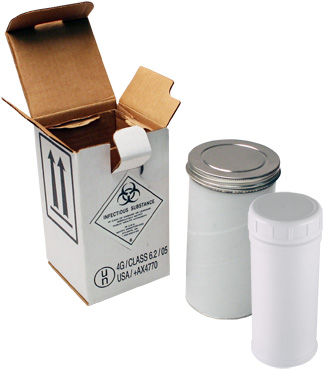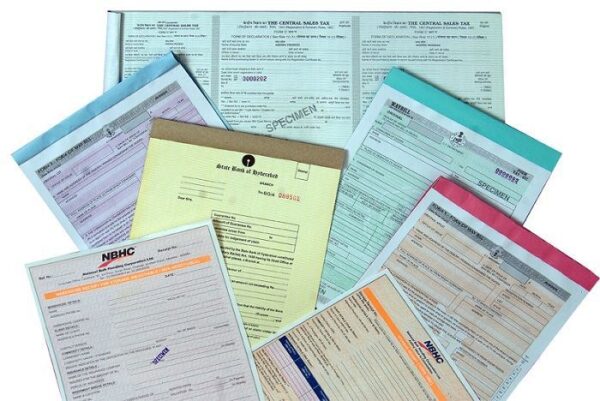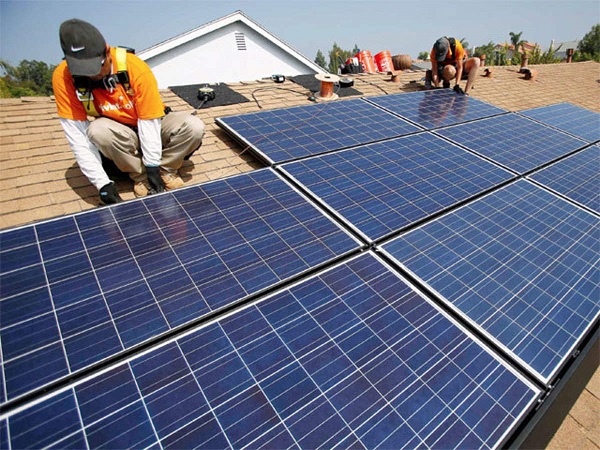How To Get Export Incentives
 There are guidelines to obtain export incentives. These incentives are aimed at encouraging and assisting exporters to increase and diversify the total value and volume of non-oil exports from Nigeria. This week’s edition of Shippers’ Guide show how these incentives are designed to address the major problems of supply, demand and price competitiveness of Nigeria’s export. Some of the incentives now take the form of Negotiable Duty Credit Certificate (NDCC) and are as indicated below:
There are guidelines to obtain export incentives. These incentives are aimed at encouraging and assisting exporters to increase and diversify the total value and volume of non-oil exports from Nigeria. This week’s edition of Shippers’ Guide show how these incentives are designed to address the major problems of supply, demand and price competitiveness of Nigeria’s export. Some of the incentives now take the form of Negotiable Duty Credit Certificate (NDCC) and are as indicated below:
(i) Manufacture – In – Bond Scheme
The Manufacture – in – Bond Scheme is designed to encourage manufacturers to import raw material inputs and other intermediate products duty-free for the production of exportable goods, backed by a bond issued by any recognized financial institution. The bond will be discharged after evidence of exportation and repatriation of foreign exchange has been produced.
(a) Guidelines:
(i) The Manufacturer-in-Bound Scheme (MIBS) shall be applicable to export manufacturers only.
(ii) Interested manufacturers should apply to the Federal Ministry of Finance using the prescribed forms.
(iii) For a manufacturer to enjoy the scheme, the factory premises must be approved for that purpose by the Nigerian Customs service.
(iv) Approval including the Import Requirement Certificate (IRS) should be obtained within a period of two months and transmitted to the Nigerian Customs service for implementation.
(v) The Nigerian Customs Service will determine acceptability guarantee Bond issued by Commercial or Merchant Bank or NEXIM or Insurance Companies covering not less than 110 per cent customs duty payable on each consignment.
(vi) Under this scheme, manufacturers of export commodities will be entitled to import duty-free raw material inputs, CKDS and intermediate inputs whether prohibited or not for the manufacture of export commodities.
(vii) The Manufacturer-in-Bond Scheme shall operate on an annual (12 calendar months) importation basis as the exporter wishes. For prohibited items however, the scheme shall operate Import by Import basis.
(viii) The Bond, which shall be effective from the date of its issuance by the Bank shall be discharged when the condition stipulated therein have been fulfilled.
(ix) The Nigerian Customs Service will periodically monitor the utilization of raw materials imported under this scheme until the Bond is fully executed.
(x) In the event of inability of any manufacturer to fulfill the conditions stipulated in the Bond, the manufacturer to fulfill the conditions stipulated in the Bond, the manufacturer shall apply to the Nigerian Customs Service through its approved dealer Bank, for an extension of the Bond particularly when the life of the Bond has expired. The extension of the Bond shall not exceed three months.
(xi) Repatriation of the foreign exchange realized from the transaction shall be confirmed by the Central Bank of Nigeria before the Bond is discharged.
(xii) Bill of Entry marked “Manufacturer-in-Bond Scheme” shall be used for clearance of goods under the scheme.
(xiii) A Committee comprising the Ministry of Finance, representatives of the Nigerian Customs Service, Nigerian Export Promotion Council, Standard Organization of Nigeria and the Central Bank of Nigeria shall monitor the scheme. The monitoring body shall render a quarterly Report to the NMIBS Committee.
(xiv) In the event of default by the manufacturer, the Nigerian Customs Service shall redeem the Bond by calling on the guarantor to pay up the appropriate customs duties and other associated charges.
(xv) A manufacturer participating in the Manufacturer-in Bond Scheme is expected to designate a warehouse or store in his factory premises for the storage of inputs and finished goods; and
(xvi) Import Duty Report (IDR), Clean Report of Findings (CRF), Form ‘M’ and other relevant documents for this scheme shall be clearly marked “MIB Scheme”.
(b) Duty Drawback Scheme:
Duty Drawback scheme provides for refunds of duties/sur-charges on raw materials including packing and packaging materials used for the manufacture of products upon effective exportation of the final products. The new Duty Drawback scheme shall give automatic refunds (60%) on initial screening by the Duty Drawback Committee and upon the presentation of bond from a recognized Bank, Insurance Company or other financial institution.
The Bond will cover 60% of the refund to be made to the exporter and will only be discharged after final processing of the application has been made. At the end of the processing of exporters claims, the Duty Drawback Committee shall grant any balance where applicable or request for refunds for any over payment made.
(c) Duty Drawback Facilities:
The scheme provides for fixed drawback and individual drawback facilities. The fixed drawback facility is for those Exporters/Producers whose export products are listed in the fixed drawback schedule to be issued from time to time by the Committee. When the import content of the export produce is more or less constant, and import prizes (including exchange rate), tariff rates and technology used are relatively stable or “fixed”, it is possible to calculate a standard Input-Output Co-efficient Schedule (ICS) for these category of products on the basis of which a fixed drawback rate can be computed to be rebated per unit of export product.
Whereas the individual drawback is for producers/exporters who do not qualify under the fixed drawback facilities, it is therefore a straight forward traditional drawback mechanism under which duty is paid on all import inputs. The duties are subsequently, rebated on inputs used for export production. As general case the final export/producer can apply for the Scheme.
(d) Eligibility:
A trading Company which collects industrial products from one or more manufacturers as well as a trading Company which imports raw material inputs including packaging and packaging materials used for the production of goods exported by him could also apply for the scheme. Such a trading company must have entered into a contract with final producer of the product in such a way that Duty Drawback Committee can obtain necessary information and documents to enable the Committee act appropriately.
Applications must be companies incorporated in Nigeria.
(e) Time Limit:
Duty drawback application must be filled within a maximum of two years from the date of exportation. In order to qualify for the drawback payment (both individual and fixed drawback) exportation of the product which was produced with imported inputs must be completed within 18 months after the importation of the inputs.
(f) Application Procedure:
Application for either Fixed or individual Drawback Facilities should file the following documents to the Duty Drawback Committee.
(i) Completed new application form for Duty Drawback Rate/Refund obtained from the Duty Drawback Rate/Refund obtained from Duty Drawback Secretariat and all Zonal Offices of the Nigerian Export Promotion Council
(ii) Attach clear photocopies of the following documents in triplicates:
Import bill of entry for Home use (Customs and Excise Form C 188) for the respective raw material inputs used for the export production.
Import bill of landing for the raw material inputs used for the export production.
Letter of contract agreement between the Trading Company and producer in cases where the Trading Company is applying for the facility
Current registration certificate with NEPC
(iii) In addition to the above documents, all applications for refunds should be filed with the following in triplets:
Export Bill of Entry for Non-Domestic Goods (Customs and Excise Form sale 98)
Form NXP
(iv) Bank Bond to be issued by a recognized Bank or Insurance Company to the tune of 60 per cent upfront payment approved by the Committee as duty drawback refund and to guarantee the refund of any overpayment made to the exporter.
(g) Rules of Duty Drawback Application and Processing:
The following rules have to be observed to simplify the processing procedures:
(i) For the same export product defined in an export entry documents, all inputs used to produce a given export article should be treated as part of a single application and therefore cannot be divided into separate duty drawback applications.
If imported inputs, registered in a single import entry document are sub-divided and used for production of more than one export consignment, the import entry document should include information on the production of inputs and the balance remaining to be used.
(ii) Export Expansion Grant (EEG) Scheme
(a) Incentive rates:
The scheme will operate the “Weighted Eligibility Criteria” in assessing application for EEG. The baseline data as supplied by individual applicant company would be used in its assessment. Thus the method of assessment is company specific. A company’s EEG assessment would be conducted once yearly and the determined rate will apply throughout the year.
The weighted eligibility criteria have four bands: 30% 20%, 10%, and 5%. The following template will be used in assessing the incentive rate for every EEG applicant.
Determination of Export Performance – Eligibility Criteria
| S/N | Eligibility Criteria | Company Data | Threshold | Weight | Company Score |
| 1 | Local value added | 25% | |||
| 2 | Local content | 20% | |||
| 3 | Employment (Nigerians) | 20% | |||
| 4 | Priority Sector | 10% | |||
| 5 | Export Growth | 20% | |||
| 6 | Capital Investment | 5% |
| Total Weight | 100% |
A new entrant into the EEG scheme shall provide prior period financial statement or where applicable an investment plan for its assessment.
(c) Eligibility:
(i) Export must be registered with the Nigerian Export Promotion Council (NEPC).
(ii) Eligible exporter shall be a manufacturer producer or merchant of products of Nigeria origin for the export market (i.e. the products must be made in Nigeria).
(iii) An exporter must have a minimum annual export turnover of N5million and evidence of repatriation of proceeds of exports.
(iv) Exporter – company shall submit its baseline data which includes Audited Financial statement and information on operational capacity to NEPC.
(d) Validity for EEG Application
Qualifying export transaction must have the proceeds fully repatriated within 180 days, calculated from the date of export.
(iii) Export Development Fund Scheme
The Scheme provides financial assistance to private sector exporting companies to cover part of their initial expenses in respect of the following export promotion activities:
- a) Participation in training courses, symposia, seminars and workshops in all aspects of export promotion
b) Advertising and publicity campaigns in foreign markets
c) Export market research and studies
d) Production design and consultancy
e) Participation in trade missions, buyer-oriented activities, overseas trade fairs, exhibitions and sales promotion
f) Cost of collecting trade information, and
g) Backing up the development of export oriented industries.
(iv) Trade Liberalization Scheme (TLS) of Economic Community of West African States (ECOWAS)
This is an export liberalization incentive that focuses on the ECOWAS sub-region. The Scheme is an incentive primarily geared towards export activities within the ECOWAS sub-region. The objective is to significantly expand the volume of intra-community trade in the sub-region via the removal of both tariff and non-tariff barriers to trade in good originating from ECOWAS countries. This affords preferential access to the ECOWAS market from Nigeria.
(v) OIL AND GAS FREE ZONE
The Oil and Gas Export Free Zone Act No. 8 of 1996 established an Oil and Gas Free Zone Authority to manage, control and co-ordinate all the activities within the zone. This zone encompasses three oil and gas service centers around the ports of Onne (near Port Harcourt), Calabar and Warri. All three ports have enhanced stacking and warehousing facilities awaiting subscribers. Incentives and fiscal measures approved by government that favour and encourage large investments in the region include:
- No personal income tax
• 100% repatriation of capital and profit
• No pre-shipment inspection for goods imported into the free zone.
(vi) NIGERIA EXPORT PROCESSING ZONES
The Federal Government of Nigeria has passed an aggressive Free Zone Law which has created a business friendly environment benefiting from the following incentives:
• Complete tax holiday for all Federal, State and Local Government taxes, rates, custom duties and levies;
• One-stop approval for all permits, operating licenses and incorporation papers;
• Duty-free, tax-free import of raw materials for goods destined for re-export;
• Duty-free introduction of capital goods, consumer goods, components, machinery, equipment and furniture;
• Permission to sell 100% of manufactured, assembled or imported goods into the domestic Nigerian Market;
• When selling into the domestic market, the amount of import of import duty on goods manufactured in the free zones is calculated on the basis of the value of the raw materials or components used in assembly not the finished product;
• 100% foreign ownership of investments;
• 100% repatriation of capital, profits and dividends;
• Waiver of all import and export licenses;
• Waiver on all expatriate quotas for companies operating in the zones;
• Prohibition of strikes and lockouts;
• Rent-free land during the first 6 months of construction;
TAX INCENTIVES FOR OTHER LINES OF TRADE
(i) Exemption from tax of companies profits in respect of goods exported from Nigeria provided the proceeds are repatriated to Nigeria and used exclusively for purchase of raw materials, plants equipment and spare parts
ii) Exclusion from taxes the profits of companies whose supplies are exclusively from input to the manufacturing of products for exports.
iii) All new industrial undertakings including foreign companies and individual operating in an Export Processing Zone (EPZ) are allowed full tax holidays for three consecutive years.
iv) As a means of encouraging industrial technology, companies and other organizations that engage in research and development activities for commercialization enjoy 20% investment tax credit on their qualifying expenditure.
v) Dividends distributed by Unit in Nigeria are free of tax and no withholding tax is deducted there from since such incomes have already suffered tax in the first instance.
vi) All companies engaged wholly in fabrication of tools, spare parts and simple machinery for local consumption and export are to enjoy 25% investment tax credit on their qualifying capital expenditure while any tax payer who purchases locally manufactured plants and machinery are similarly entitled to 15% investment tax credit on such fixed assets bought for use.
OTHER INCENTIVES, BENEFITS AND GUARANTEES
(i) INCENTIVES FOR SPECIAL INVESTMENT
For the purpose of promoting identified strategic or major investment, the Commission shall, in consultation with appropriate Government agencies, negotiate specific incentive packages for the promotion of investment as the Commission may specify.
(ii) DOUBLE TAXATION AGREEMENTS
In the last few years, double taxation agreements have been entered into by Nigeria with a number of countries. These agreements are entered into with a view to affording relief from double taxation in relation to taxes imposed on profit taxable in Nigeria and any taxes of similar character imposed by the law of the country concerned.
The method of relief from double taxation under Nigeria’s tax treaties is by way of a “tax credit”. The mechanism of the tax credit is such that the tax payable in Nigeria on profits of a Nigeria Company being remitted into the country is reduced by the amount of “foreign tax” paid abroad. The converse is equally true where an overseas company receives profits from abroad. Nigeria has DTA with the following countries:
- UK;
• France;
• Netherlands;
• Belgium;
• Pakistan;
• Canada;
• Czech Republic;
• Philippines; and
• Romania.
Negotiations are in progress at various stages with other countries like Turkey, Russia, India, and Korea.
Other countries have indicated their interest to commence negotiation of tax treaties with Nigeria. As a concession to Nigeria’s treaty partners, government has approved a lower treaty rate of 7.5 on dividends, interest, rent and royalties when paid to a bonafide beneficial owner of a treaty country.
(iii) INVESTMENT PROMOTION AND PROTECTION AGREEMENT (IPPA)
As part of additional effort to foster foreign investors’ confidence in the Nigeria economy, Government continues to enter into bilateral investment promotion and protection agreements (IPPAs) with countries that do business with Nigeria.
The IPPA helps to guarantee the safety of the investment of the contracting parties in the event of war, revolution, expropriation or nationalization. It also guarantees investors the transfer of interests, dividends, profits and other incomes as well as compensation for dispossession or loss. To this end, Nigeria has concluded and signed IPPAs with:
- France;
• United Kingdom;
• Netherlands;
• Romania;
• Switzerland;
• Spain;
• South Africa; etc.
Negotiations with the United States of America, Belgium, Sweden and the Russian Federation are at various stages.
(iv) LIBERALISATION OF OWNERSHIP STRUCTURE
The government in repealing the Nigerian Enterprises Promotion Act of 1972 (Amended in 1977 and in 1989) and promulgating the Nigerian Investment Promotion Commission Act of 1995 has liberalized the ownerships structure of business in Nigeria. The implication of this is that foreigners can now own 100% shares in any company as opposed to the earlier arrangement of 60%-40% in favour of Nigerians.
(v) REPATRIATION OF PROFIT
Under the provisions of the Foreign Exchange (Monitoring & Miscellaneous Provision Act No. 17 of 1995), foreign investors are free to repatriate their profits and dividends net of taxes through an authorized dealer in freely convertible currency.
(vi) GUARANTEES AGAINST EXPROPRIATION
The Nigerian Investment Promotion Commission Act guarantees that no enterprise shall be nationalized or expropriated by any government in Nigeria








